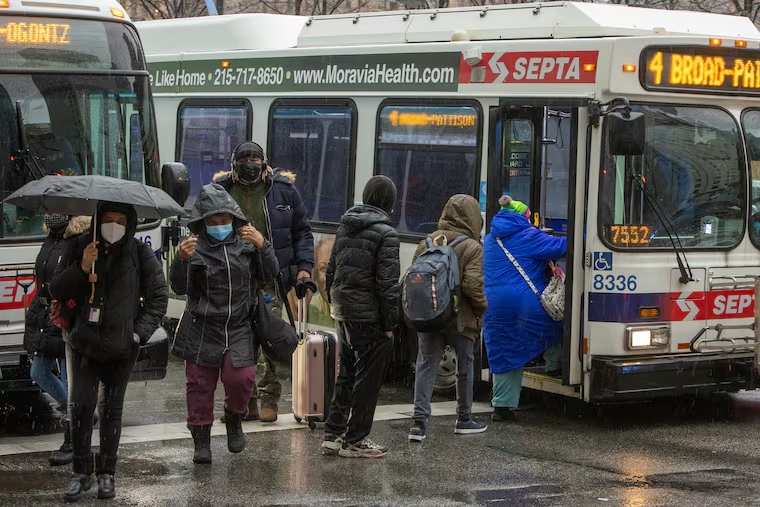Philly businesses would have to let workers pay for transit commutes with pretax dollars under Council bill
The proposal is part of an increased focus on attracting more riders back to SEPTA.

A proposed city ordinance could increase ridership on SEPTA and save people money by requiring many businesses to offer a federal benefit that allows workers to pay for their commutes with pretax dollars.
Introduced Thursday by Councilmember Helen Gym, the mandate would apply to Philadelphia businesses with 50 or more full-time employees. The IRS program lets taxpayers set aside up to $280 a month for public transit passes and certain other commuting expenses.
For some potential customers, SEPTA passes are “not accessible without the savings pretax purchase gives,” Gym said. “Right now, people are battling a lot of inflation and we want to help them, as well as help SEPTA get more riders.”
She calculates that a rider who buys a monthly SEPTA TransPass with the benefit could save an average of $250 a year upfront on their federal income tax bill — more with higher-priced passes that include travel on Regional Rail.
The bill introduction follows SEPTA’s launch of its own major effort to increase ridership: Key Advantage, a pilot program in which Penn Medicine, Drexel and Wawa will buy transit passes and give them to employees at no cost, as a perk.
Workers have been flocking to sign up for that new benefit, SEPTA says, and a large number of them don’t have Key cards, indicating they are not current riders or at least have not used the network in some time, said CEO Leslie S. Richards.
Gym’s bill, cosponsored by eight Council colleagues, would count such employer-paid transit benefits.
» READ MORE: Penn Medicine, Drexel and Wawa will provide free SEPTA passes to employees
Other employers have told SEPTA they’re interested in joining the Advantage program, including some small businesses, Richards said.
“We’re thinking through how we could help them,” she said, such as by figuring out ways the small companies could share administrative costs.
SEPTA carries about 530,000 people on a weekday, a little more than half of its pre-COVID ridership.
Businesses would have some cost under the proposed Council mandate, mainly for deducting the funds from paychecks and keeping track of the accounts. No formal estimate of the cost accompanied the introduction. Offering commuter benefits typically lowers the cost of payroll tax contributions for employers.
It is not clear how many businesses would be subject to the legislation. Hundreds of employers in the city already offer the commuter tax benefit but Gym believes some smaller enterprises do not.
Increasing ridership on public transit would help ease congestion on city streets and reduce motor-vehicle emissions, supporters say. And Gym said more people on SEPTA platforms could help with concerns about safety and cleanliness that may be discouraging some potential riders, particularly on the Market-Frankford Line.
“People going about their ordinary daily business makes for a safer transit system,” Gym said.